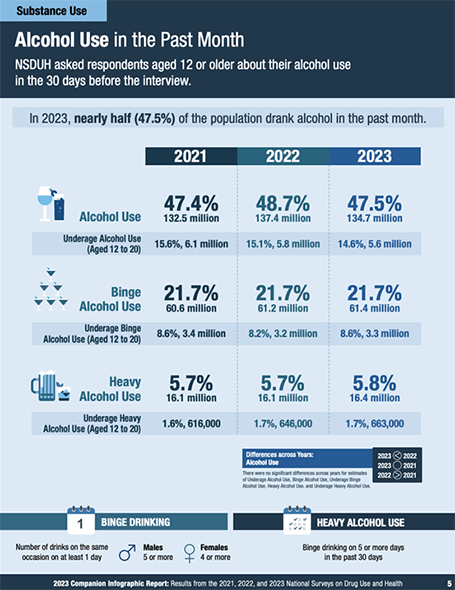FACTS AND FIGURES
Learn about statistics, trends, and other relevant insights for behavioral health practitioners working to improve health outcomes.
Alcohol Use
Alcohol use remains a widespread concern, affecting millions of Americans. According to the National Survey on Drug Use and Health (NSDUH),
in 2023, 47.5% (134.7 million) of the population consumed alcohol within a month of reporting, 21.7% (61.4 million) reported binge drinking,
and 5.8% (16.4 million) reported heavy alcohol use. Among youth aged 12 to 20, 14.6% (5.6 million) drank alcohol, and 8.6% (3.3 million)
engaged in binge drinking
1.

Source:
2023 NSDUH National Report
April is Alcohol Awareness Month, highlighting the need for education, prevention, and early intervention to address the risks of excessive alcohol
use. Raising awareness helps promote responsible drinking and encourages conversations about the health and social impacts of alcohol misuse. Expanding
access to treatment, reducing stigma, and prioritizing alcohol education can help build healthy communities and support those in need. SAMHSA’s
Find Help
& Support
provides information on various free resources and support related to substance use, mental health disorders, suicide, disaster distress, and more.
*If you or someone you know is struggling with alcohol use and related disorders, reach out to
988
for free, confidential support.*
Please see SAMHSA’s and other resources for addressing substance use disorders.